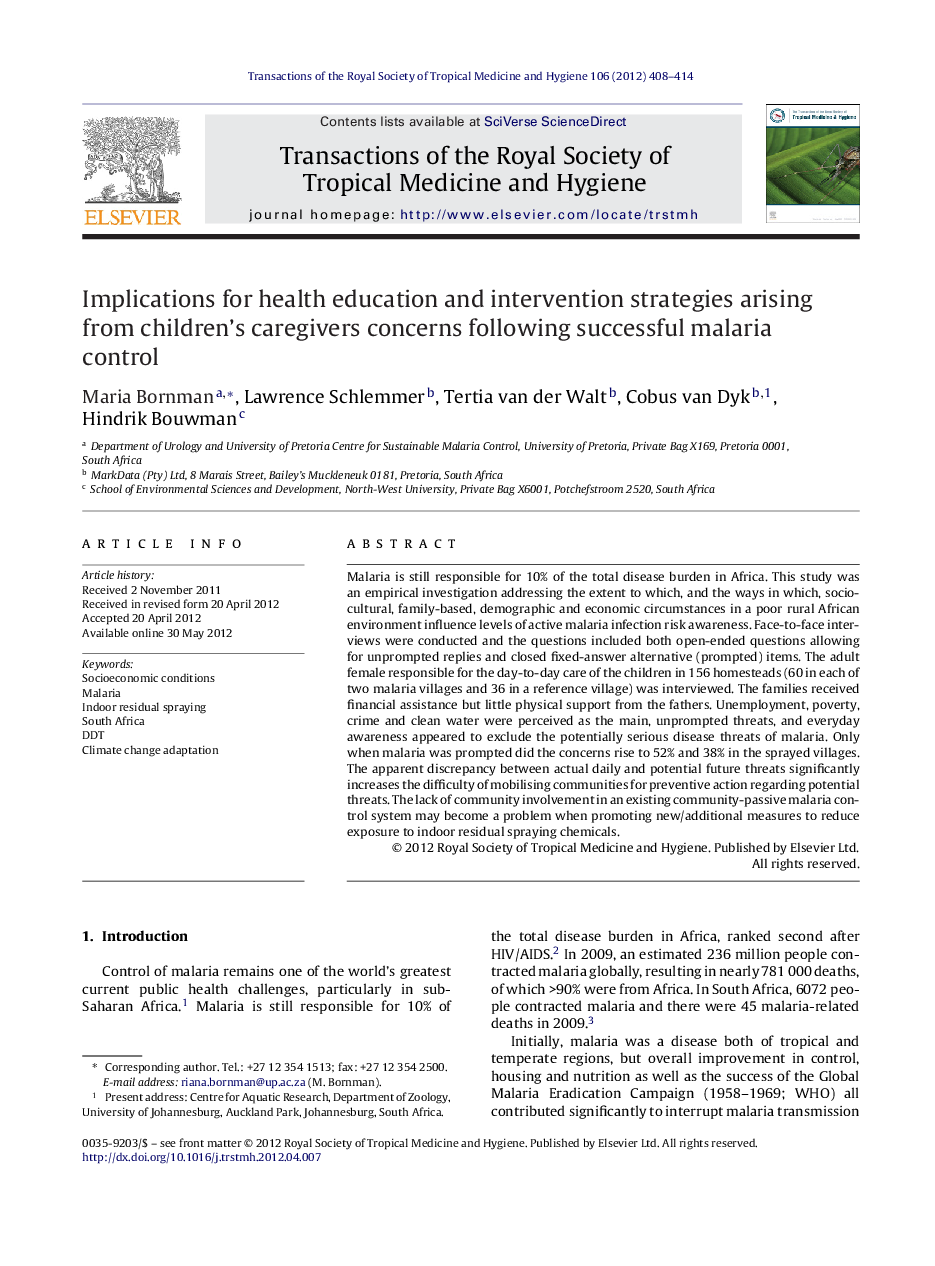| Article ID | Journal | Published Year | Pages | File Type |
|---|---|---|---|---|
| 3420411 | Transactions of the Royal Society of Tropical Medicine and Hygiene | 2012 | 7 Pages |
Abstract
Malaria is still responsible for 10% of the total disease burden in Africa. This study was an empirical investigation addressing the extent to which, and the ways in which, sociocultural, family-based, demographic and economic circumstances in a poor rural African environment influence levels of active malaria infection risk awareness. Face-to-face interviews were conducted and the questions included both open-ended questions allowing for unprompted replies and closed fixed-answer alternative (prompted) items. The adult female responsible for the day-to-day care of the children in 156 homesteads (60 in each of two malaria villages and 36 in a reference village) was interviewed. The families received financial assistance but little physical support from the fathers. Unemployment, poverty, crime and clean water were perceived as the main, unprompted threats, and everyday awareness appeared to exclude the potentially serious disease threats of malaria. Only when malaria was prompted did the concerns rise to 52% and 38% in the sprayed villages. The apparent discrepancy between actual daily and potential future threats significantly increases the difficulty of mobilising communities for preventive action regarding potential threats. The lack of community involvement in an existing community-passive malaria control system may become a problem when promoting new/additional measures to reduce exposure to indoor residual spraying chemicals.
Keywords
Related Topics
Life Sciences
Immunology and Microbiology
Applied Microbiology and Biotechnology
Authors
Maria Bornman, Lawrence Schlemmer, Tertia van der Walt, Cobus van Dyk, Hindrik Bouwman,
